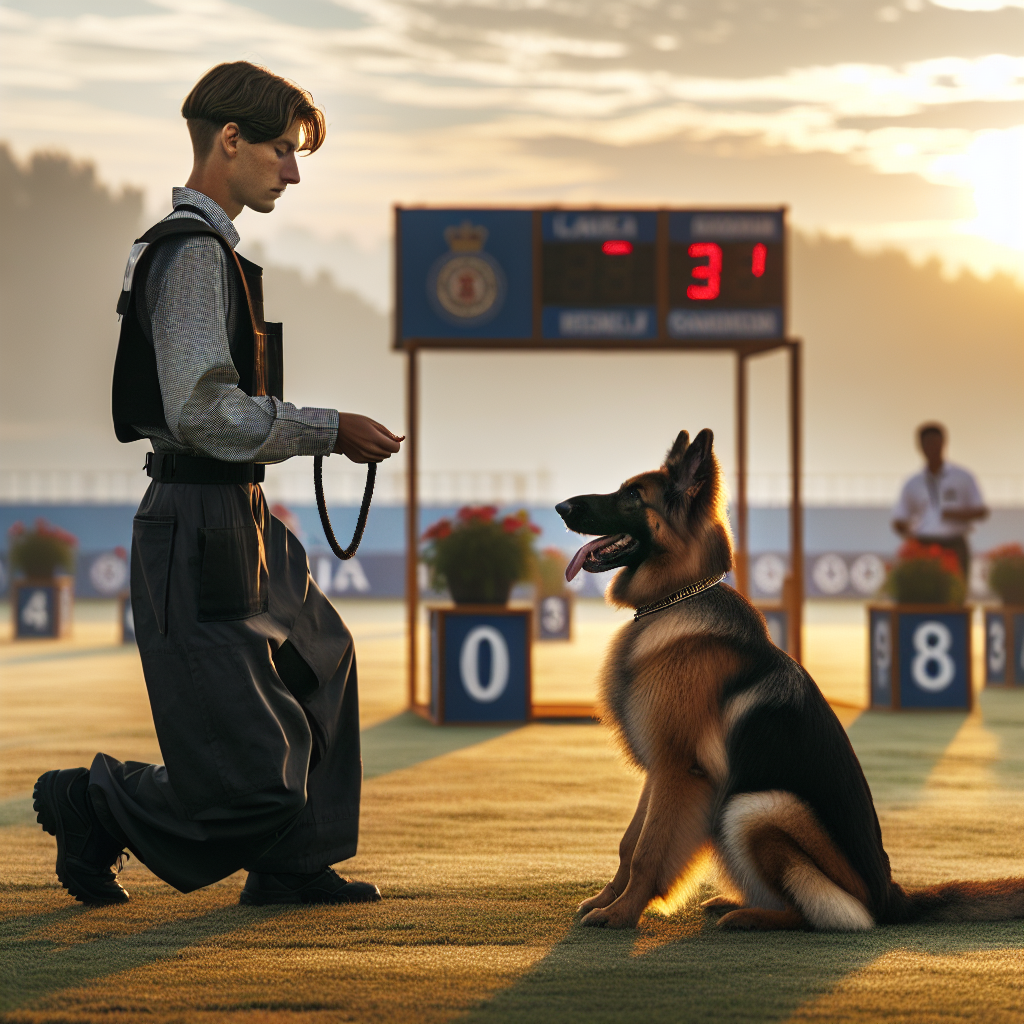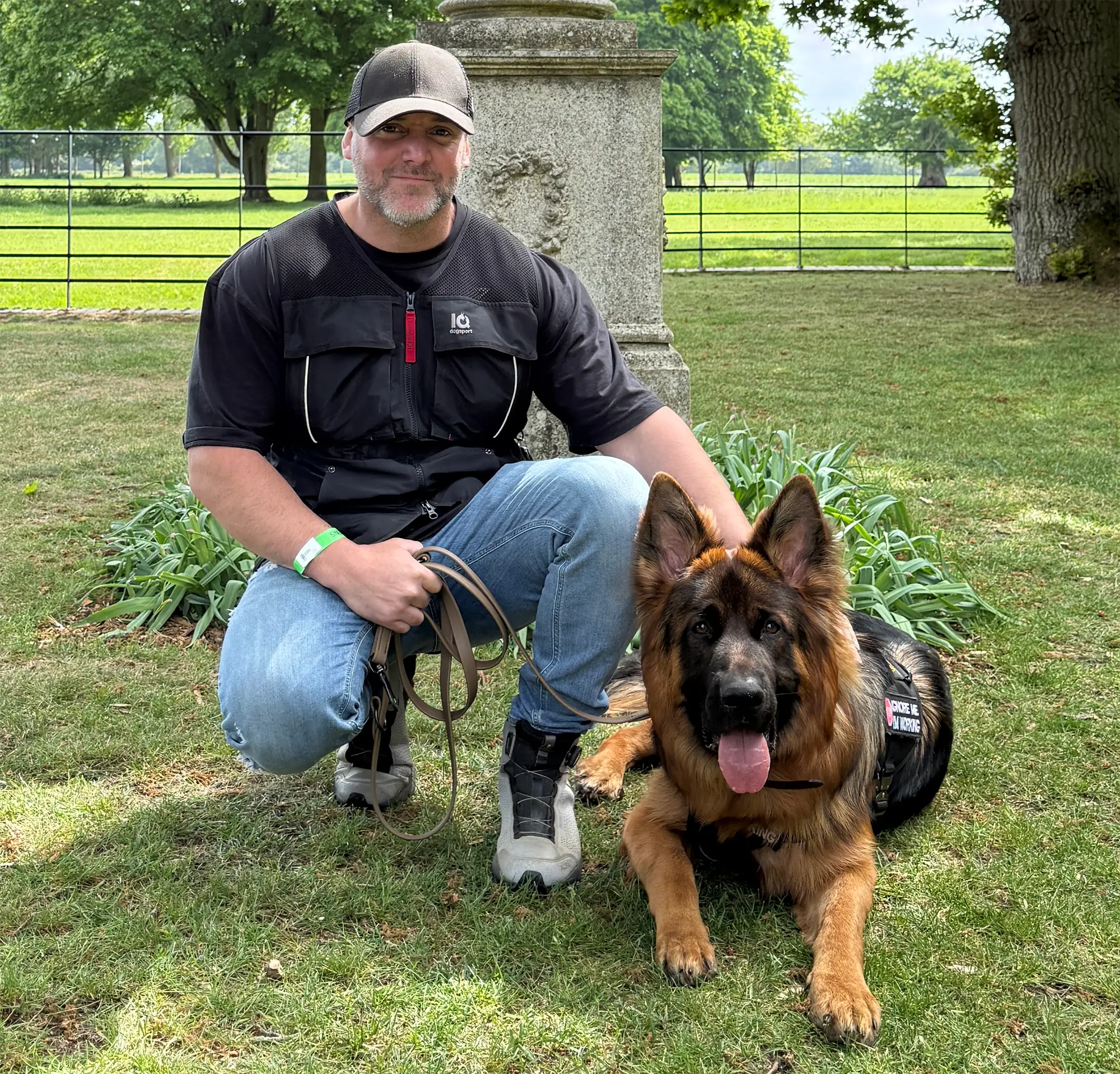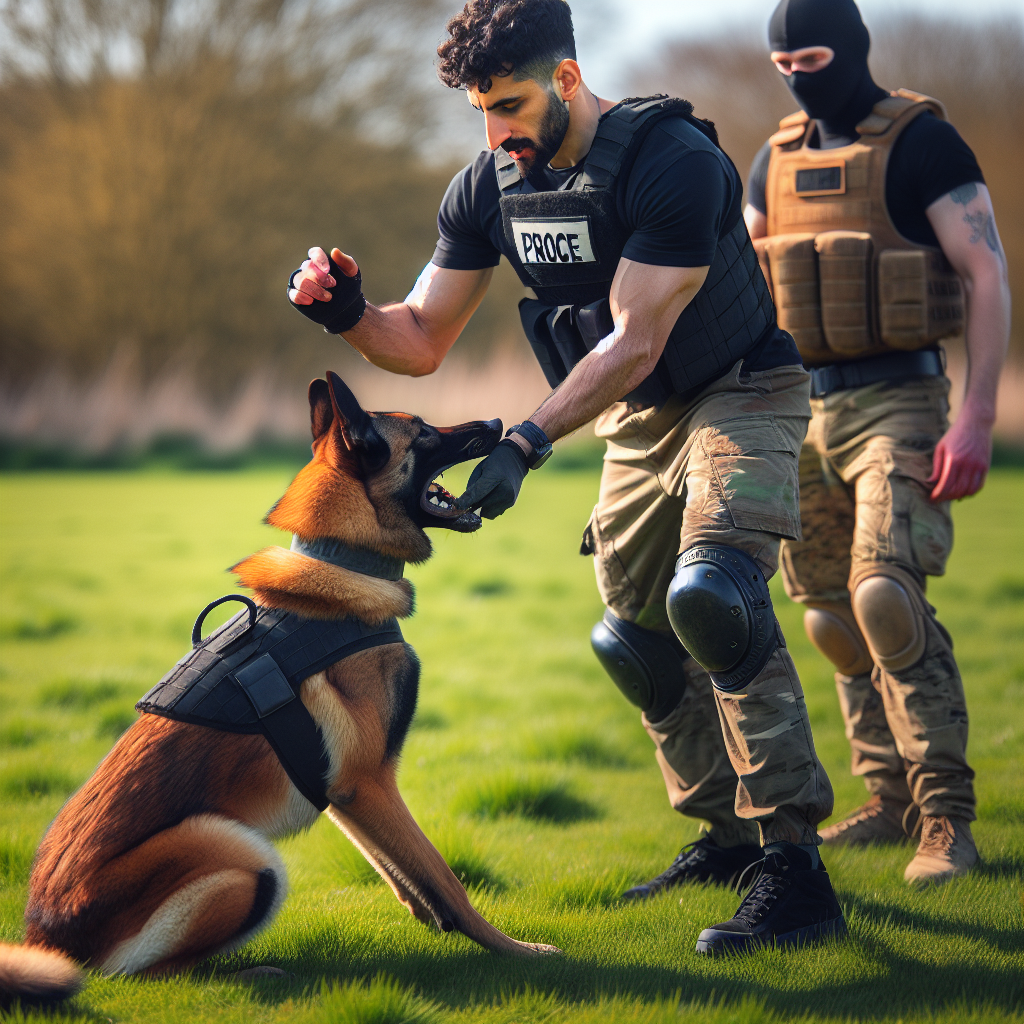Pre Trial Mental Focus Rituals for Handlers

Pre Trial Mental Focus Rituals for Handlers
Great handling does not happen by chance. It is a product of repeatable habits that keep you calm, clear, and ready when it counts. This guide lays out pre trial mental focus rituals for handlers so you can step into any ring composed, connected, and consistent. At Smart Dog Training, every routine follows the Smart Method, and our Smart Master Dog Trainer team coaches handlers to build the same dependable structure for trial day. If you want results you can trust, your ritual must be as deliberate as your dog’s training.
Why Focus Before The Trial Matters
Pressure makes simple tasks feel hard. Without a plan, nerves creep in, timing slips, and dogs read the change in your body. Pre trial mental focus rituals for handlers create predictability. The same steps every time reduce decision load, ground your energy, and turn nerves into useful drive. Your dog gets a steady handler and performs with confidence.
- Calmer mind means cleaner cues and markers
- Predictable rhythm reduces ring nerves
- Consistent warm up preserves the dog’s top gear for the ring
- Clear reset steps help you recover after small mistakes
The Smart Method Applied To Handler Mindset
Smart Dog Training builds every routine on five pillars. Pre trial mental focus rituals for handlers are no different.
- Clarity: Define each step you will do before you trial. Write it down and rehearse it.
- Pressure and Release: Use breath and posture to manage arousal. Create a clear release before you enter the ring.
- Motivation: Choose a phrase, song line, or image that lifts your energy without making you jittery.
- Progression: Start with short, simple rituals at fun matches, then scale to full trials with more variables.
- Trust: Keep promises to yourself. Do what you practiced. Your dog will feel the steady leadership.
Our SMDT coaches teach handlers to stack these pillars into a single routine that runs on autopilot under stress. That is the core of pre trial mental focus rituals for handlers in the Smart system.
Build Your Personal Anchor
An anchor is a short sequence that brings you into the present and sets your intent. It must be portable, quick, and repeatable anywhere.
Use this simple Smart anchor:
- Footing: Plant feet hip width. Soften knees. Feel the ground under your shoes.
- Breath: Slow inhale through the nose for four, brief hold for one, smooth exhale through the mouth for six.
- Cue word: Whisper a single word like Ready or Calm that you will only use ringside.
- Micro intention: State today’s job softly. Example: Clean heelwork, honest signals, happy dog.
Repeat the anchor once during warm up and once at the gate. Over time, this becomes a conditioned switch. It is the backbone of pre trial mental focus rituals for handlers.
Breathwork That Works Ringside
Breathing is your fastest lever for arousal control. Use these two drills.
- Box breathing: Inhale four, hold four, exhale four, hold four. Repeat three rounds to steady heart and hands.
- One breath reset: When a queue shift or judge delay rattles you, take one long exhale and let your shoulders drop. Then smile. This ends the spike before it spreads.
Body Reset And Posture
Dogs read posture better than words. Before you step off, set your frame.
- Stand tall and loose, not stiff
- Eyes soft, not locked on the judge
- Hands quiet at neutral points you have practiced
- Subtle smile to relax your face and voice
Posture is part of pre trial mental focus rituals for handlers because your dog takes its emotional cue from your body.
Visualisation In Three Steps
Success starts in your head before it shows in your feet. Visualisation builds a script your body can follow under pressure.
- Scene: Picture the venue, the ring, the judge, the gate person, and where you will stage.
- Process: Walk each exercise in your mind. Hear your marker words. See your hand signals. Feel your pace.
- Recovery: See a small mistake such as a crooked sit. Watch yourself breathe, reset, and continue clean.
Two short visualisations of 60 to 90 seconds beat one long session. Wrap each with your anchor. This keeps pre trial mental focus rituals for handlers compact and usable.
The 60 Minute Arrival Plan
Structure lowers stress. Arrive with time to spare and follow a precise schedule. This timeline is designed by Smart Dog Training to keep your dog fresh and your mind clear.
- 60 minutes out: Park, toilet the dog, hydrate, and walk the grounds. Breathe and observe. Confirm ring layout.
- 45 minutes out: Set your crate area. Prepare rewards and equipment. Light engagement games for two minutes, then rest.
- 30 minutes out: Handler visualisation for 90 seconds. Dog rests. Review order of exercises once.
- 20 minutes out: Start warm up flow. Keep it short and sharp.
- 10 minutes out: Settle period. Dog rests in a calm spot. You run your anchor and one box breathing set.
Pre trial mental focus rituals for handlers work best when time is not tight. Give yourself room to think.
The 20 Minute Warm Up Flow
Warm up is not training. It is a primer that sets the exact state you want in the ring.
- Two minutes: Engagement and play with clear out and stillness on cue
- Four minutes: Short reps of heel, sit, down, recall components you will use
- Two minutes: Precision touches such as hand touch or chin rest to confirm control
- Two minutes: Calm settle on a mat or in a sit while you breathe
- One minute: Final marker check, one paid behaviour, end on a win
End warm up while your dog wants more. That is a rule at Smart Dog Training and a pillar of pre trial mental focus rituals for handlers.
The Five Minute Call Up Routine
As you approach the ring, tighten your rhythm.
- Leash management: Hands quiet, no fiddling
- One breath reset and your cue word
- One focus check from the dog, pay once
- Stand at the gate and do nothing for fifteen seconds to prove you can be still
Stillness is a skill. Build it into pre trial mental focus rituals for handlers so your dog learns that quiet is safe and rewarded.
Ring Entry Ritual That Sets The Tone
Entry is your first impression on the judge and your dog. Make it deliberate.
- Ask permission to enter with eye contact and a polite nod
- Step in at your chosen pace and breathe out as you cross the line
- Hand signal and cue word at your neutral start point
- Micro smile and move on your count, not the crowd’s
Small, predictable beats remove chance. A solid entry is the heart of pre trial mental focus rituals for handlers because it launches the routine you planned.
Maintaining Focus Between Exercises
Good handlers do not drift. Use tiny rules to keep control without tension.
- One voice: Speak in the same tone throughout
- One pace: Keep a consistent walk between stations
- One look: Eyes on the dog or the next task, not the sidelines
Between exercises, you are either setting the next success or giving focus away. Your pre trial mental focus rituals for handlers must include these micro habits.
Handling Distractions And Delays
Delays happen. Judges confer, stewards pause, winds gust, loudspeakers crackle. Your job is to protect your dog’s state.
- Park position: Dog in a calm sit or down next to you
- Soft talk: One quiet word like Easy or Hold that you have proofed
- Breath check: One slow exhale for you, then silence
Return to your start point in your head and act as if nothing changed. This simple loop belongs in all pre trial mental focus rituals for handlers.
After A Mistake Reset Without Emotion
Errors are data. What you do next decides the outcome.
- Pause for one breath. No sighs, no eye rolls.
- Reset the picture. Step half a pace, square your shoulders, cue again.
- Finish the rep. Do not chase perfection mid ring.
Recovery without drama preserves your dog’s trust. Smart Master Dog Trainer mentors rehearse resets with clients so the response is automatic. This turns pre trial mental focus rituals for handlers into a safety net, not a rigid script.
Post Run Debrief And Journaling
Growth comes from reflection. Right after the run, capture notes while the memory is fresh.
- What worked: List three things you want to repeat
- What wobbled: List one skill to train, not ten
- Emotional score: Rate your calm and clarity from one to five
- Ritual notes: Did your anchor work, and where did it slip
These notes refine your pre trial mental focus rituals for handlers before the next event. Smart Dog Training builds debriefs into every coaching plan so progress is steady and stress stays low.
Sample Script You Can Use Today
Here is a short script that fits most sports and test formats. Adjust words to fit your style.
- Arrival: Walk the grounds, breathe, soft scan of the ring. Whisper Ready.
- Staging: Set crate area. Visualise for one minute. Review order once.
- Warm up: Two minutes play, four minutes skills, two minutes precision, two minutes settle, one minute finish and pay.
- Call up: One breath reset. One focus check, pay once. Stand still for fifteen seconds.
- Entry: Breathe out as you cross the line. Cue word. Start on your count.
- Between tasks: One voice, one pace, one look.
- Recovery: If a mistake appears, breathe, reset picture, finish clean.
- Debrief: Three wins, one train item, calm score.
Print this, practice at home, then at club level, then in a match. Stacking success like this is the essence of pre trial mental focus rituals for handlers.
Common Pitfalls To Avoid
- Over warming the dog: Save the best work for the ring
- Changing cues on trial day: Speak exactly as you trained
- Rushing the gate: Leave extra minutes to avoid panic
- Watching other runs: Protect your mental space
- Skipping food or water: Fuel brains and muscles
Smart Dog Training solves these pitfalls by giving you an exact plan and coaching you through it until it feels natural.
How Smart Coaches Your Ritual
Pre trial mental focus rituals for handlers are a trained skill. With Smart Dog Training, you do not guess. We map your anchor, your breath plan, your warm up blocks, and your ring entry script. We rehearse in real settings until you and your dog trust the process.
- One to one coaching to build your personalised ritual
- Proofing in distraction so your plan holds anywhere
- Mentorship from an SMDT who competes and understands pressure
- Objective debrief and iteration after each event
Ready to turn your dog’s behaviour around? Book a Free Assessment and connect with a certified Smart Master Dog Trainer, available across the UK.
FAQs
What are pre trial mental focus rituals for handlers
They are short, repeatable steps that you perform before and during a competition to keep your mind calm and your cues clear. In the Smart Method, they include an anchor, breathwork, visualisation, a warm up timeline, and a ring entry script. These keep your dog confident and your handling consistent.
How long should a pre trial routine take
Allow sixty minutes from arrival to ring entry, with the focused warm up lasting about twenty minutes and a five minute call up routine. Your anchor takes seconds. The key is not the clock but consistency. If you are tight on time, keep the order the same and shorten each block.
What if my dog needs a longer warm up
Extend engagement or skill blocks by one or two minutes each, then add a longer settle so arousal does not creep up. Avoid drilling. The goal is to show the dog the exact state you want in the ring. A Smart Dog Training coach will tailor the plan to your dog’s needs.
How do I reset after a mistake without losing points
Pause for one breath, rebuild the picture by moving half a step or squaring your shoulders, then cue cleanly. Do not rush or chatter. This quiet reset maintains your dog’s confidence and shows control. We practice this with clients so it becomes automatic.
Can rituals really reduce ring nerves
Yes. Rituals reduce decision load and give you a set path to follow. Breathwork lowers arousal, visualisation primes timing, and a clear entry script removes guesswork. Over a few events, your brain links the ritual to success and nerves fade.
How do I build a ritual for a young dog
Start with tiny versions at home. One breath, one cue word, one short warm up, then reward and end. Add time and variables slowly. This is progression by design. Smart Dog Training coaches young teams so the routine grows with the dog.
What should I visualise the night before
Run a one minute reel of the venue, your anchor, clean execution of each task, and one calm recovery from a small error. Keep it short and positive. End with a smile and your cue word to seal the script.
How do I handle noisy or crowded venues
Build a noise ladder in practice, then use your park position and soft talk between tasks. Face away from the crowd when possible, and stick to one voice and one pace. The same pre trial mental focus rituals for handlers work in any venue when you keep them simple and consistent.
Conclusion
The best teams do not wing it. They run a plan. Pre trial mental focus rituals for handlers give you a simple, repeatable path from the car park to the final exercise. Anchor your breath, visualise your success, enter with intent, and recover without drama. That is how you deliver under pressure and earn the result your training deserves.
Your dog deserves training that truly works. With certified Smart Master Dog Trainers (SMDTs) nationwide, you'll get proven results backed by the UK's most trusted dog training network. Find a Trainer Near You


